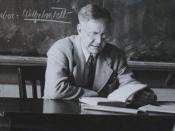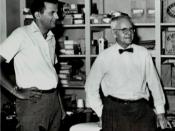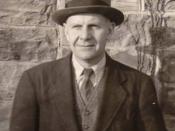The Lure of Impersonality in Tradition and the Individual Talent and The Intentional Fallacy
T. S. Eliot generally denies such notion that his critical theories have influenced the subsequent English literary criticism and somewhat self-deprecating and minimising of his work, he once said that his literary criticism was merely the 'by-product' of his 'private poetry-workshop'. But almost everyone who considers the history of modern literary criticism regards T. S. Eliot as one of the progenitors of the New Criticism. This general stance is also supported by John Crowe Ransom in his 1941 book The New Criticism which gives the movement its name and acknowledges Eliot's paternity as thus-"All the New Critics emerged from milieu in which", as Ransom puts it, "young men speak up and quote Eliot pertinently on nearly any literary occasion". Especially Eliot's 1919 essay Tradition and the Individual Talentwith its theory of impersonality paved the way for the formalism of the New Critics. My paper is intended to show how some of the core concepts of W.K.
Wimsatt and Monroe C. Beardsley's famous essay "The Intentional Fallacy" resembles and can be traced back to those of Eliot's theory of 'impersonality', espoused in his Tradition and the Individual Talent.
Second part of Tradition and the Individual Talent deals with the theory of impersonality and poetic mind and hints at the actual beginning of 'New Criticism'. It begins with the bold statement - "Honest Criticism and sensitive appreciation are directed not upon the poet but upon the poetry". It is at the core of 'New Criticism', and The Intentional Fallacy conforms to this principle. Eliot believes that poetry should be objective and hence the poet should have to merge his personality with the literary tradition. Therefore, here Eliot defines the poet as nothing but a catalyst,


